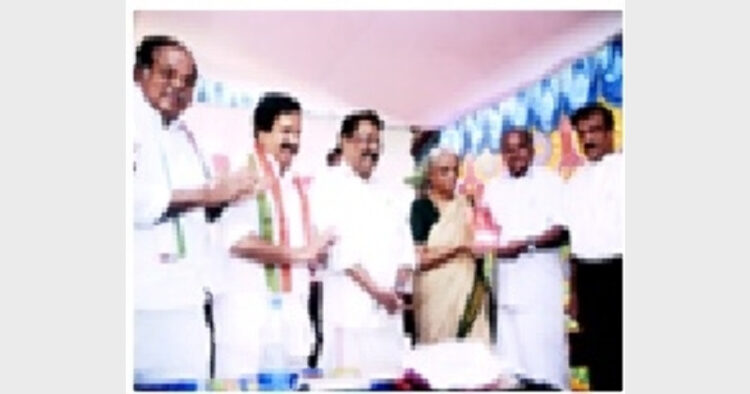Burying the politics of untouchability
T. Satisan, Kochi
THE clouds of political untouchability melted away for camaraderie between political opponents in Kerala, thanks to the courtesy expressed by both Congress and CPI-M in the state. But, that in both cases it was surrounding a single Sangh parivar leader is again an interesting matter for political observers. BJP national executive member and poet-cum-columnist Adv. P.S. Sreedharan Pillai was in the news last week for the aforementioned reasons. Two weeks back Kerala Pradesh Congress Committee’s (KPCC) publication cell published Pillais’s book “Onchium, Oru Marana Warrant” (Onchium, A Death Warrant), compilation of his columns published by different newspapers in the state.
All articles are concerning legal, social and political aspects of the recent brutal assassination of CPM rebel leader TP Chandrasekhran. They discuss the post-murder police enquiry, media reports, court’s observations and CPI-M’s lapses. A ‘mini who is who’ of KPCC shared dais with the Sangh Parivar leader. Rajya Sabha deputy chairman Prof. P. J. Kurien, KPCC president Ramesh Chennithala, KPCC vice president Thalekkunnil Basheer and KPCC spokesman M.M. Hassan were the Congress leaders who addressed the well attended function organized in VJT Hall, Thiruvananthapuram, the capital city of Kerala. Chennithala stated that they intend to encourage good writers from all parties. Kerala Sahitya Academy chairman and well known novelist Perumbadavam Sreedharan and famous poet and environmentalist Sugathakumari released the first copy. The foreword has been penned by Ramesh Chennithala.
All channels and newspapers of Kerala gave much importance to the episode. Because, it was the first incident of that sort in Kerala. When some hints of controversy about the publishing of BJP leader’s book by Congress’ body came up, Sreedharn Pillai told the media that “Onchium, A Marana Warrant” was his 24th book and the proceeds of this book, like all his previous books, will be spent for the charity. He added that he loves to give the proceeds of this book to the widow and son of T.P. Chandrasekharan if they are not reluctant to receive it. Ramesh informed Sreedharn Pillai by the evening of the releasing day that all the printed copies of the book were sold out by dusk.
The author, in his speech, told that Indian system and culture were always for freedom of media and freedom of expression. Pt. Nehru was always for these strong pillars of democracy. The period of Emergency (1975-1977) was the only exception. But, that period did not last long.
Such a CPI-M gesture towards a Sangh parivar leader was unbecoming and incredible. In the past they not only did not invite Sangh Parivar representatives to their programme but also they made it a point not to accept any Sangh Parivar invitation to attend their programmes.
After the first occasion rumour mills worked over time to blame Sangh Parivar for going closer to Congress. But, after PUKASA programme allegation turned the other way around. This time it was about BJP moving nearer to CPI-M. But one thing is clear, that is – political opponents will have to embrace men of wide acceptability and leaders with exemplary life style and scholarship even though they belong to Sangh parivar school of thoughts. Transparent politicians, social workers and men of letters look at these developments as the beginning of an era where men of social commitment, intellectual capacity, wide acceptance and professional excellence will be welcomed even by political opponents cutting across party and ideological lines. They believe that this trend should continue in the larger interests of the state and country.














Comments